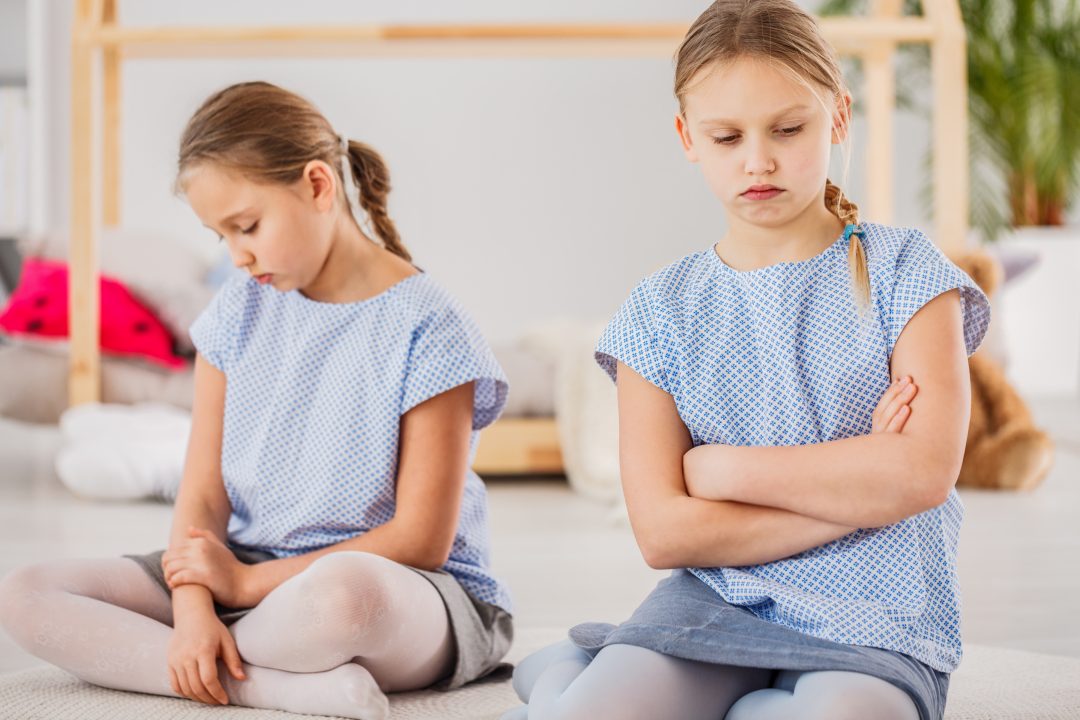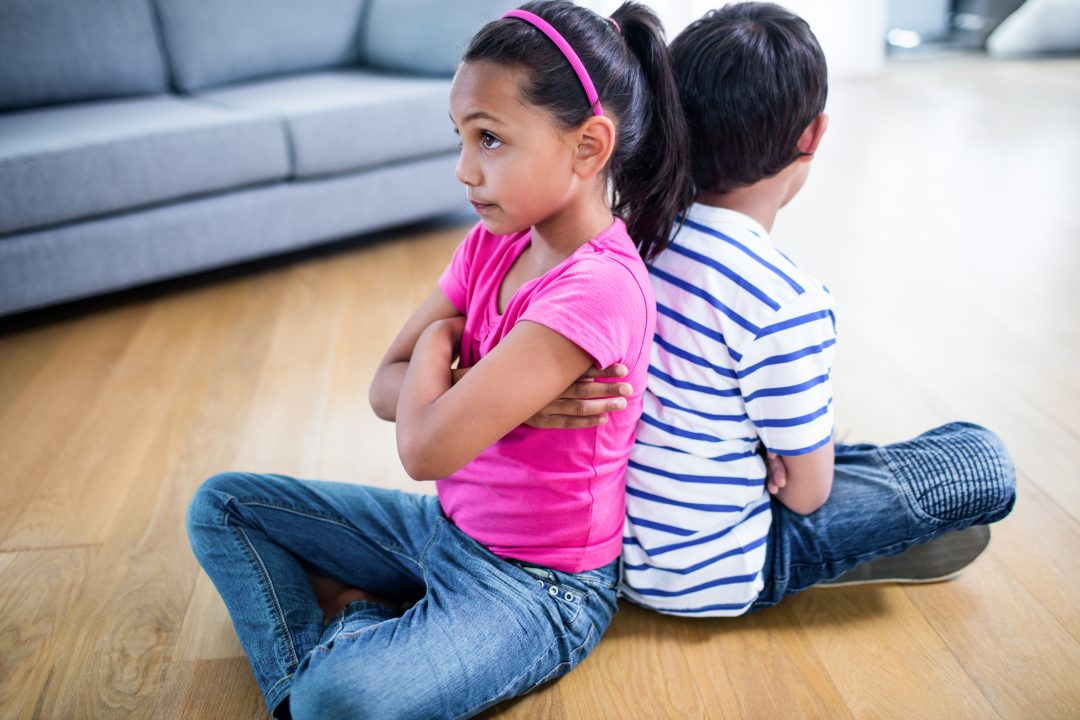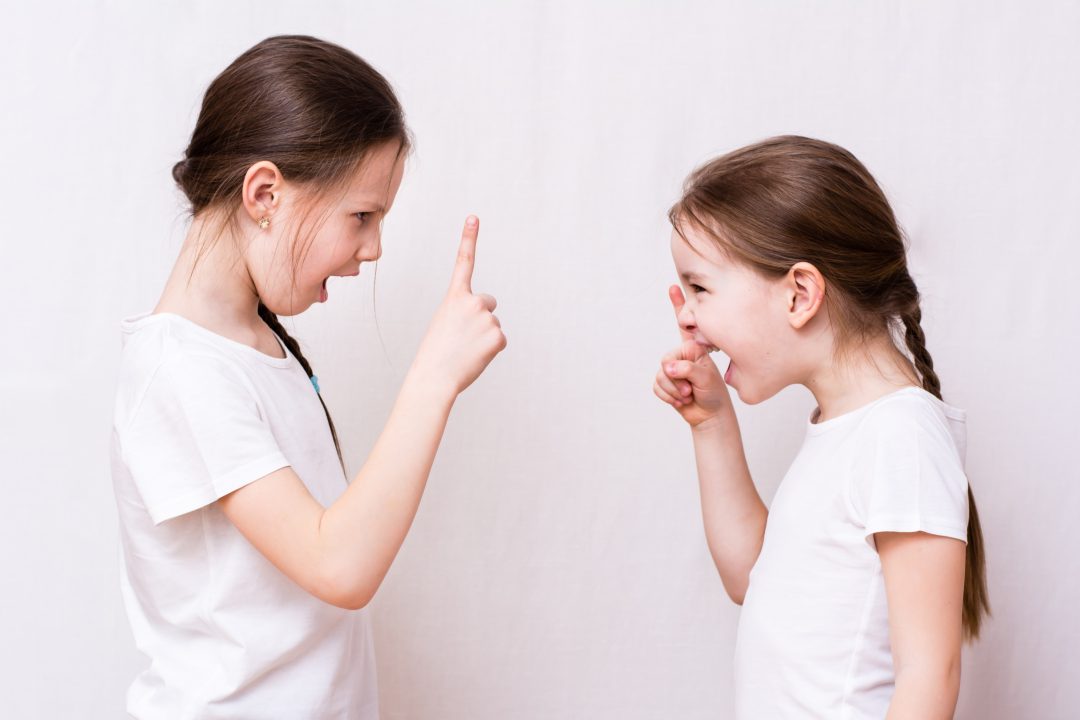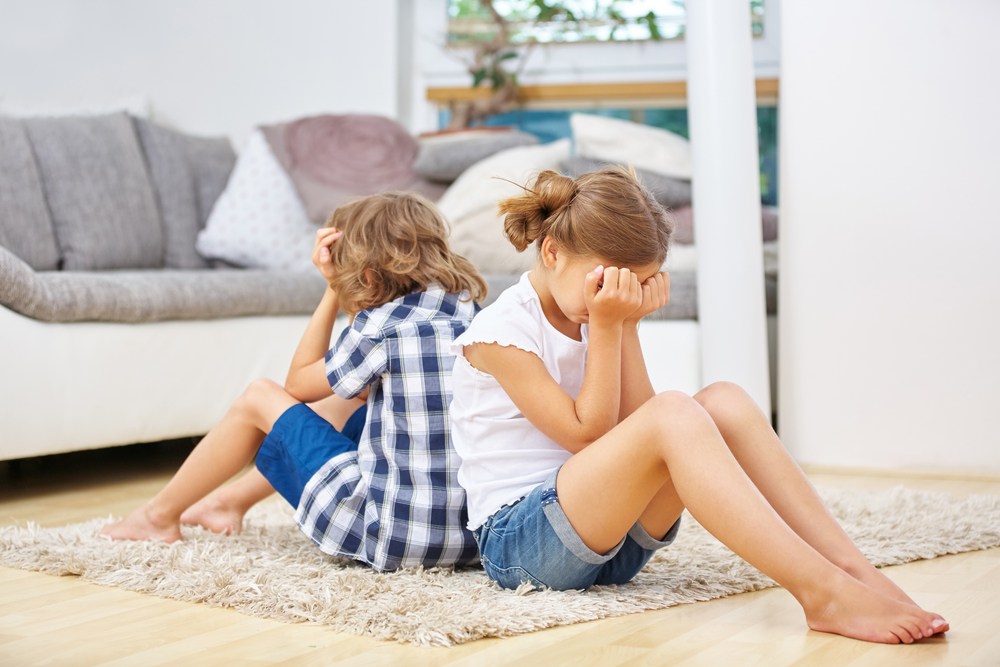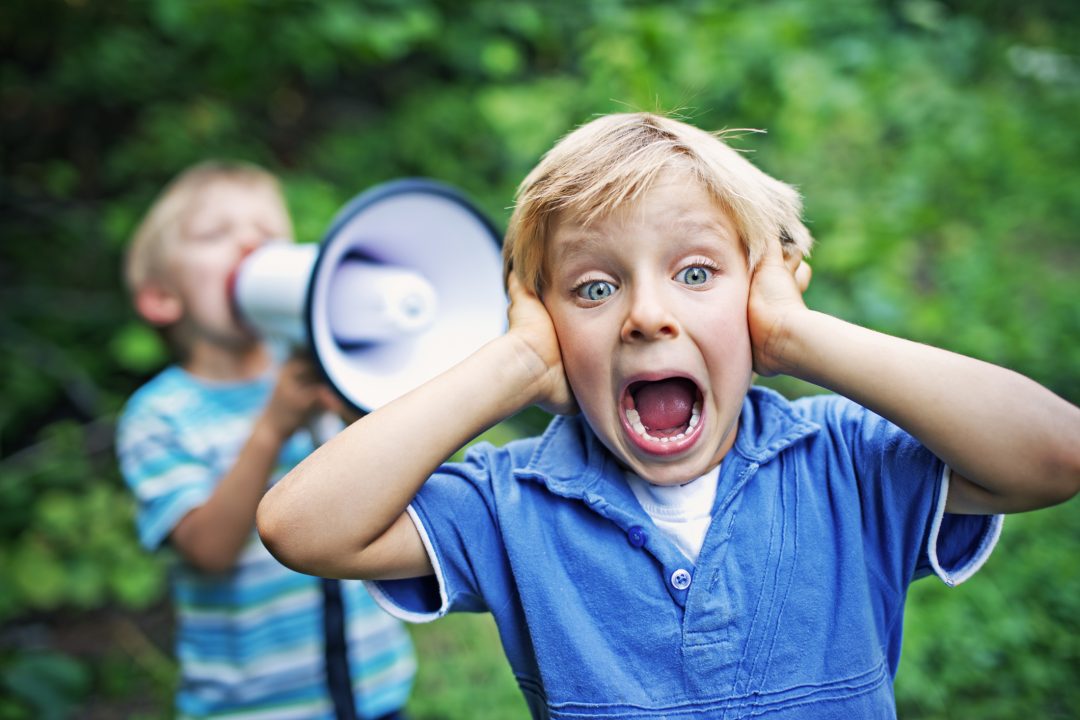Sibling stress: What to do when your kids just don’t get along
Categories: General Parenting
We all know someone who is besties with their brother or sister. When you ask them about their childhood, they’ll describe the convenience of having a sibling to accompany them on all life’s adventures: a confidante, cheerleader and co-conspirator. For others, our brothers or sisters seem like such different people to us that we’ve suspected their secret adoption. Then, there are those of us who are pretty much indifferent, or who love their siblings but aren’t really friends with them. There’s a whole spectrum of relationship configurations for siblings as adults, and this is true in childhood, too.
But, as parents, we often feel like we’ve gotten something wrong when our kids don’t get on. We turn it into a parenting failure rather than just a natural discord between personalities and temperaments. We’re very good at blaming ourselves, but it’s actually pretty normal for siblings to clash, although there’s a difference between that and despising each other (more on that later). Sure, it would be nice if our kids all got on famously, but what if that’s not something parents have any control over or can reasonably expect? That dovetails nicely with the first item on our list of suggestions for what to do if your kids just don’t get along:
Manage your expectations
‘As adults, we have people we don’t get along with, too. We can’t expect kids to not have any disagreements just because they’re related,’ says ParentTV expert, Dr Justin Coulson. ‘We don’t choose our siblings, and they don’t choose us.’ Identifying that you might have aspirations for your kids’ relationships that are a bit unrealistic will help you see that actually, if they’re not plotting to murder each other, the sibling interactions in your home are probably pretty standard, despite what Hollywood portrayals might suggest. ‘Biologically, it’s absolutely normal for siblings to not get on,’ says ParentTV expert and parenting guru, Maggie Dent. ‘They’re all fighting for limited resources, so it’s natural for there to be conflict.’
Understand that conflict isn’t always a bad thing
Even though it might be hard to handle the level of conflict between your kids sometimes, it’s important to acknowledge that conflict can be positive, too, says Dr Coulson. ‘Conflict isn’t a bad thing in and of itself. Conflict gives us something to push against, and we figure out who we are in relation to it. It helps us to grow and navigate social boundaries.’ Sometimes, conflict can actually be productive and have a motivational effect, too, says Dr Coulson, pointing to the example of Venus and Serena Williams. ‘For those sisters, their rivalry actually spurred them on to achieve greatness, and there are lots of similar stories throughout history.’ Experiencing conflict in the safety of your home can offer excellent ‘teachable moments’ and learning experiences for your children too, points out Maggie. ‘Your home is meant to be a classroom where your kids can learn how to manage conflict and difficult moments using appropriate language and strategies. They can then take these learnings into their lives and interactions outside your home.’
Respond to conflicts calmly
When her four boys were younger and Maggie Dent could hear things getting a bit heated, she resisted entering into the conflicts herself. Instead, Maggie’s strategy was to tell them to all go outside for five minutes. ‘Usually, they’d run around for a bit and get past whatever they were fighting about, then when I came back, they’d be playing a new game altogether,’ Maggie says. Sometimes, putting a bit of space between them until they’ve de-escalated can be helpful, too, Dr Coulson suggests. ‘When you’re dealing with sibling rivalry, it’s okay to just separate your kids, calm them down, spend a little bit of time in and help them to feel safe and secure. Then when they feel safe, they’ll trust us enough to share their feelings.’
It’s also worth thinking about whether your kids’ conflict is triggering for you, Maggie says, as this can compromise your ability to stay calm when you’re responding to it. ‘The most reactive parents are often the ones who’ve had difficult experiences themselves. If you had a sibling who was hard on you, you might rush in to defend the child you’re identifying with before you understand fully what is happening.’ If that is the case for you, some counselling might help you make peace with your own childhood experiences and work out how to be more neutral when it comes to conflict among your own kids.
Be positive about your kids’ relationships
Michelle Mitchell, ParentTV expert and popular parenting speaker and author, suggests that being mindful about how you frame the relationships of your children helps them to view them as evolving, rather than set in stone. ‘As parents, talking about our kids’ relationships positively is really important,’ Michelle says. ‘Don’t say things like ‘I can’t leave you two alone for a second,’ or ‘You two are always at each other.’ Instead, reiterate that they are learning how to get along with each other. It’s important that we build up the positives in our home, even when siblings are going through a challenging time. Keep the positives of their relationships in front of them and leave that door open so they have the opportunity to keep walking through it.’
Avoid assigning blame
‘Don’t come in and be the judge and executioner when you’ve only seen three seconds of an interaction and missed everything that came before that,’ Maggie says. ‘Your kids need you to help them work out what the other one needs, not who is at fault.’ Dr Coulson agrees, and suggests that conflicts can also be a good way of helping kids to develop empathy and accountability. His ‘vicious circle’ strategy helps facilitate this. ‘When my kids have had a conflict, I invite them to sit down at the table,’ Dr Coulson says. ‘I take a pen and paper and write down what Child A says Child B did. Then I ask Child A how they felt when Child B did those things. The sibling, Child B, listens to all this. Both children can build their emotional vocabulary and be in a position to experience empathy, here. Then, I ask Child A what they did. They are now in a place where they have to really own their part of the conflict. Then, I ask Child A how they think Child B felt when they did those things. Child A now needs to consider how their actions impacted the other person, and Child B can confirm whether they get it right. Then, we discuss how both of them contributed to the situation and how each is now responsible for fixing it. When it’s all down on paper, they can see that both had a part in how it played out. Then, I teach them how to apologise for what they did and the outcome of what they did, and then ask for forgiveness, genuinely. This allows for restoration of the relationship.’
Okay. But what if the situation is a little more serious than this?
‘All of our kids fight,’ Michelle Mitchell says. ‘It’s a normal part of growing up, but it can cross the line into dangerous territory. We need to keep our homes as respectful and safe as possible.’
There is a line, and if you feel like your kids’ relationships go beyond normal antagonism, it’s essential that some work is done to bring (relative) harmony back into your family unit. ‘When siblings develop a really deep dislike, it’s often triggered by something like one child believing the other is loved more or preferred by their parents,’ says Maggie Dent. ‘The child then creates a mindset or belief system around this and decides that their sibling is responsible for all their unhappiness. They filter everything through this mindset.’ If your own efforts to facilitate resolutions haven’t done the trick with your kids, it’s worth considering family counselling and/or individual therapy to help tease out the roots of the relationship breakdown and find a way to mend it. Your children may not ever be best friends, but there’s no need for them to be enemies, either. A house full of animosity is an awful place for everyone, parents included, and nobody deserves to live like that.
If you’d like some further professional help to manage the sibling relationships in your family, Relationships Australia can help you explore options for counselling. Alternatively, if you’re experiencing difficult family relationships and need urgent assistance, call Lifeline on 13 11 14 and speak to a trained counsellor. If anyone in your home is unsafe right now, please call 000.


